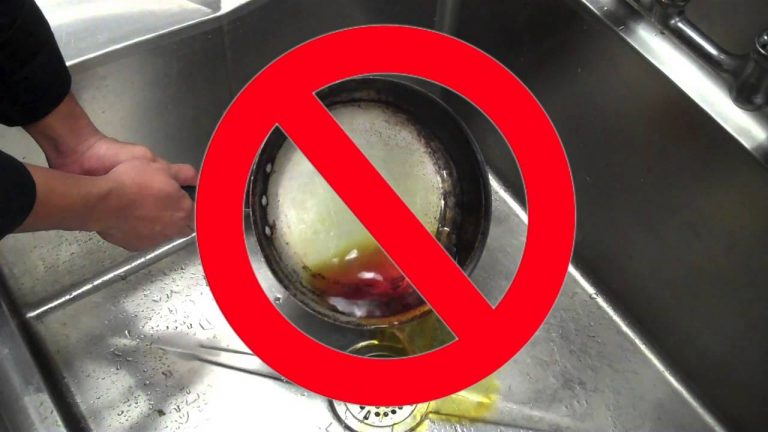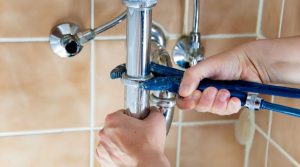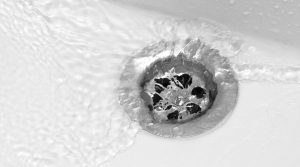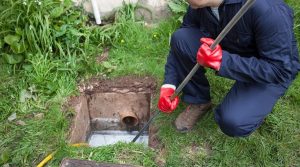Pouring grease down the drain can lead to severe plumbing issues and environmental harm. Understanding the consequences and adopting proper disposal methods are essential for maintaining a healthy plumbing system and community.
Key Takeaways:
- Clogged Pipes: Grease solidifies in pipes, leading to blockages that impede water flow.
- Environmental Impact: Improper grease disposal contributes to sewer system blockages and environmental pollution.
- Proper Disposal: Collect grease in a container, allow it to solidify, and dispose of it in the trash.
The Hazards of Pouring Grease Down the Drain
While it may seem convenient to dispose of cooking grease by pouring it down the sink, this practice poses significant risks. Hot grease may flow easily, but as it cools, it solidifies, adhering to the inner walls of your pipes. Over time, this accumulation narrows the passage for water, leading to stubborn clogs that can cause backups and potential water damage in your home.
Moreover, grease doesn’t remain confined to your household plumbing. As it travels through the sewage system, it can combine with other substances, forming large, solid masses known as “fatbergs.” These blockages can obstruct municipal sewer lines, resulting in overflows and environmental contamination. Communities often face significant expenses to remove these obstructions and repair the damage caused.
Proper Grease Disposal Methods
To prevent these issues, it’s crucial to dispose of grease responsibly. Here are some effective methods:
- Use a Container: After cooking, pour the hot grease into a heat-resistant container, such as an empty can or jar. Once it cools and solidifies, secure the lid and place it in your regular trash.
- Wipe with Paper Towels: For smaller amounts of grease, allow it to cool slightly, then use paper towels to wipe the grease from pots and pans before washing. Dispose of the used paper towels in the trash.
- Reuse When Possible: If the grease is clean and suitable for reuse, store it in a sealed container in the refrigerator for future cooking. This not only reduces waste but also adds flavor to other dishes.
Addressing Accidental Grease Disposal
If you’ve accidentally poured grease down the drain, act quickly to minimize potential damage:
- Hot Water and Dish Soap: Immediately run hot water to help melt the grease, and add a generous amount of dish soap. The soap can emulsify the grease, allowing it to move further down the pipes and reduce the chance of a clog.
- Baking Soda and Vinegar: Pour half a cup of baking soda down the drain, followed by half a cup of vinegar. Let the mixture sit for about 15 minutes, then flush with boiling water. This combination can help break down grease buildup and clear minor clogs.
Preventative Measures
To maintain a healthy plumbing system and avoid grease-related issues:
- Regular Maintenance: Periodically flush your drains with hot water to help clear any minor grease accumulations.
- Install Drain Screens: Use drain screens to catch food particles and prevent them from entering your pipes, reducing the risk of clogs.
- Educate Household Members: Ensure that everyone in your household understands the importance of proper grease disposal and follows recommended practices.
Professional Assistance
If you’re experiencing persistent clogs or slow drains due to grease buildup, it’s advisable to seek professional help. In Jersey City, NJ, BJC Plumbers offers comprehensive plumbing services, including clogged drain and sewer line repairs. Their team is equipped to handle grease-related plumbing issues efficiently, ensuring your system remains in optimal condition.
Frequently Asked Questions
Q: Can I pour grease down the drain if I run hot water simultaneously?
A: Running hot water may move the grease further down the pipes, but as the water cools, the grease will solidify, potentially causing clogs deeper in your plumbing system. It’s best to avoid pouring grease down the drain altogether.
Q: Are there any products that can dissolve grease in drains?
A: While some chemical drain cleaners claim to dissolve grease, they can be harsh on your pipes and may not effectively remove significant grease buildup. Natural methods, like the baking soda and vinegar approach, are safer but may only work on minor clogs. For severe blockages, professional plumbing services are recommended.
Q: Is it safe to use a garbage disposal for grease?
A: No, garbage disposals are not designed to handle grease. The disposal may break up solid food particles, but grease can still coat the blades and pipes, leading to clogs and odors. It’s best to dispose of grease using the methods mentioned above.
Q: What should I do if my drain is already clogged with grease?
A: If home remedies like hot water with dish soap or baking soda and vinegar don’t clear the clog, it’s important to contact a professional plumber. They have the tools and expertise to safely remove stubborn grease blockages without damaging your plumbing system.
By adopting proper grease disposal practices and staying vigilant about what goes down your drains, you can prevent plumbing issues and contribute to a healthier environment.







